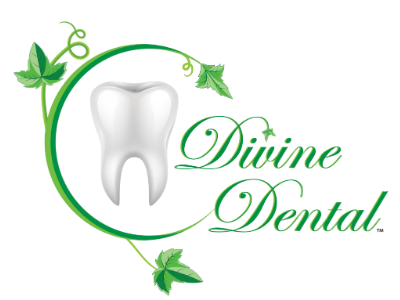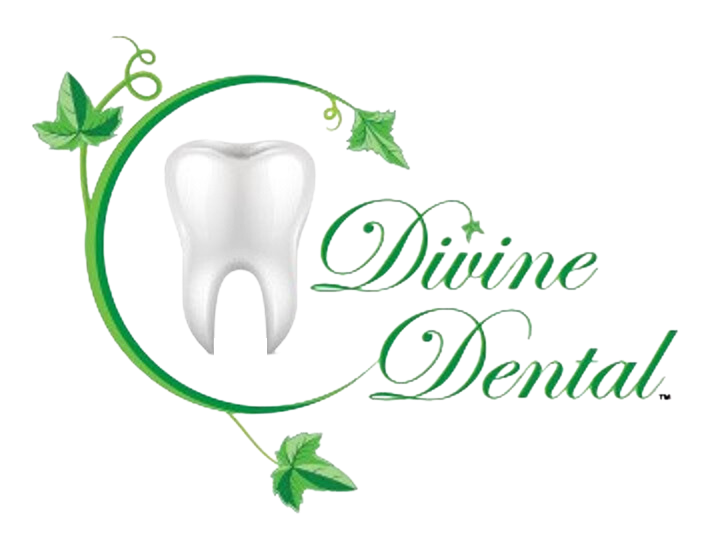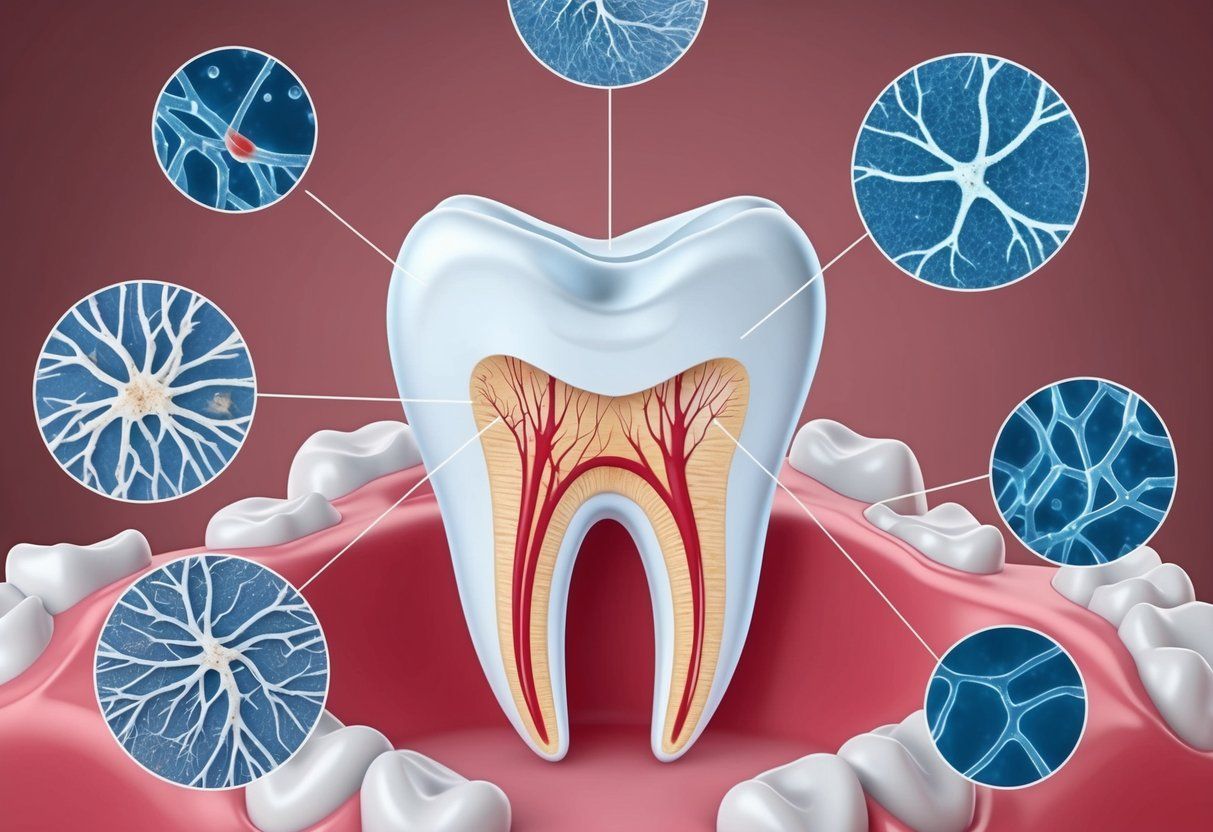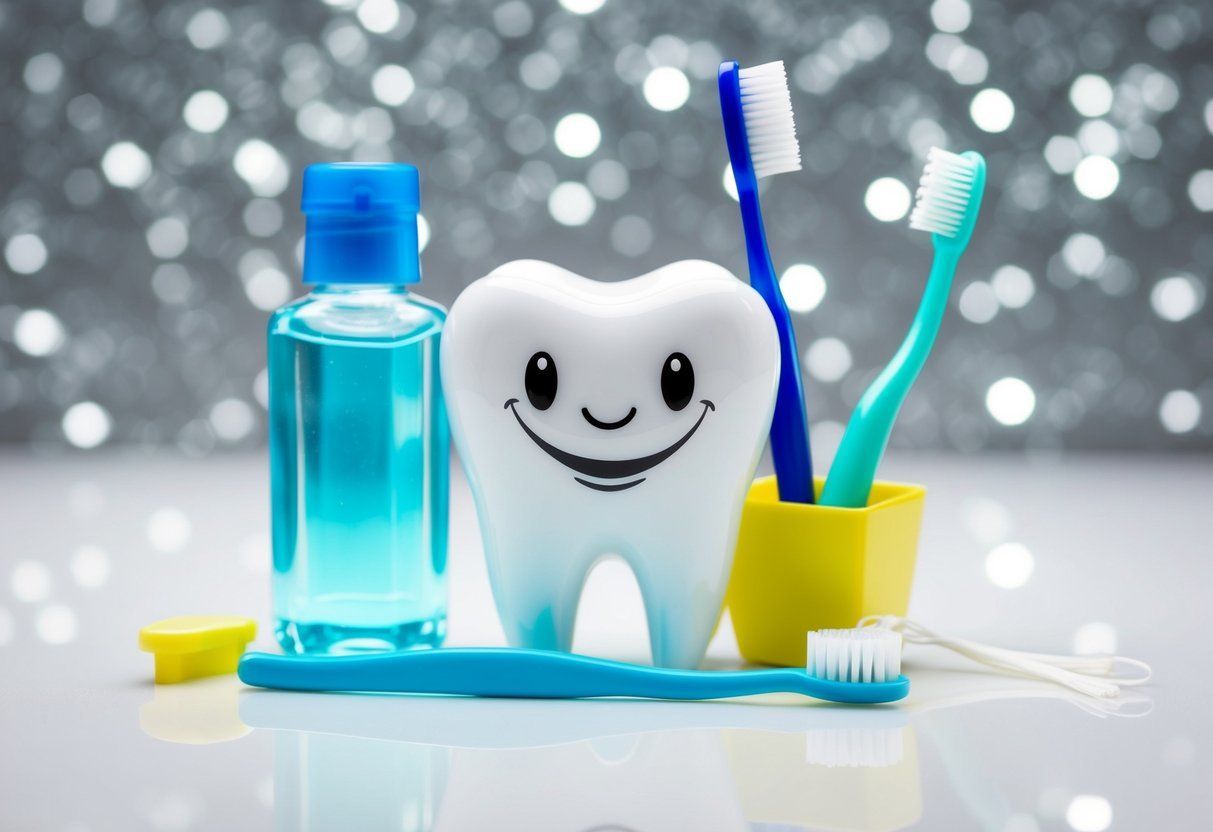How Often Should You Brush Your Teeth? Essential Guidelines for Optimal Oral Health
Brushing teeth is an essential part of maintaining oral health. Experts recommend brushing at least twice a day for two minutes each time.
This practice helps remove plaque, prevent cavities , and keep gums healthy. Many people, however, still may not know the best techniques or frequency for brushing.
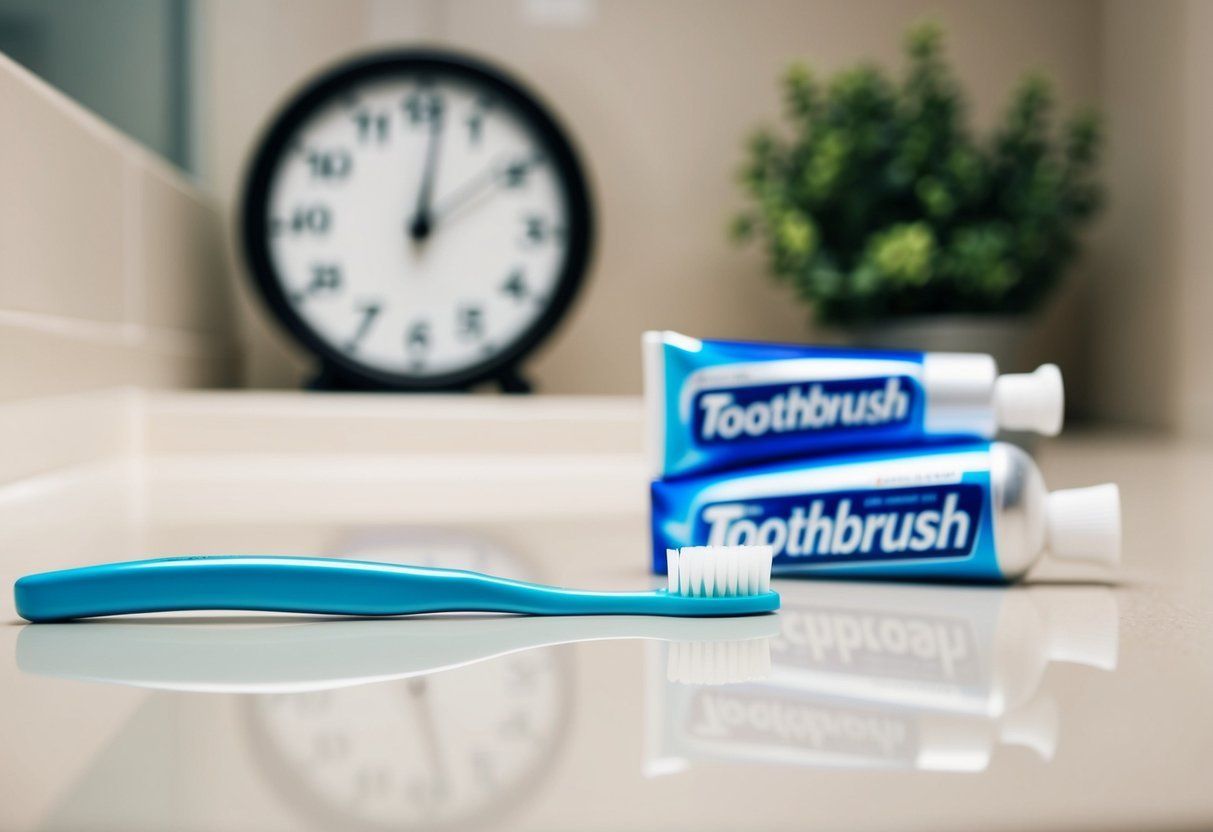
In addition to routine brushing, using fluoride toothpaste can significantly enhance dental care.
Regular visits to the dentist also play a crucial role in overall oral hygiene. These steps combined ensure a bright smile and healthy teeth for years to come.
Key Takeaways
- Brush twice a day for optimal oral health.
- Use fluoride toothpaste to strengthen teeth.
- Regular dental check-ups are essential for preventive care.
Understanding Oral Health
Oral health is important for maintaining healthy teeth and gums. Good dental care helps prevent issues like plaque, cavities, and gum disease.
Additionally, oral health can affect overall health.
Role of Brushing in Oral Hygiene
Brushing teeth is essential for oral hygiene. It removes food particles and plaque, a sticky film that forms on teeth.
Plaque can harden into tartar if not cleaned properly.
To keep teeth healthy, brushing should happen at least twice a day. A soft-bristled brush and fluoride toothpaste are recommended.
The brush should reach all areas of the mouth.
Flossing is also important as it gets rid of plaque and food between teeth. Regular dental visits help to check for problems not caught at home.
Impact of Plaque and Cavities on Dental Health
Plaque buildup can lead to cavities and gum disease. Cavities form when acids from plaque eat away at tooth enamel. This can cause pain and may require fillings or other treatments.
Gum disease begins when plaque is not removed. It can cause swollen gums and bad breath. If untreated, gum disease can lead to tooth loss. Signs of gum disease include bleeding gums and persistent bad breath.
Keeping plaque away is key. Brushing and flossing regularly can prevent both cavities and gum disease, helping maintain dental health.
Connection Between Oral Health and Overall Health
Oral health is linked to overall health in many ways. Poor dental hygiene can lead to serious health issues, including heart disease.
Infections in the mouth can enter the bloodstream, affecting the heart.
Maintaining good oral health can prevent other health problems. For example, people with diabetes may face more dental issues.
Regular dental care is crucial for everyone to keep teeth and body healthy.
Brushing Technique Essentials
Proper brushing technique is crucial for maintaining oral health. This includes selecting the right toothbrush and using effective methods for cleaning teeth. Here are some essentials to consider.
Choosing the Right Brush
Selecting a toothbrush can affect brushing effectiveness. A soft-bristled toothbrush is often recommended because it is gentle on gums and enamel. Hard bristles can cause damage with excessive pressure.
When choosing a toothbrush, consider the size and shape of the head. A smaller head often reaches difficult spots better.
Electric toothbrushes can also be considered for their ease of use and effectiveness in removing plaque.
Proper Brushing Technique
Effective brushing involves using the right technique. Holding the toothbrush at a 45-degree angle against the gum line is important. This angle allows the bristles to clean both teeth and gums.
Using a circular motion is most effective. This technique helps remove plaque without damaging gums.
It’s best to use gentle pressure while brushing to avoid irritation and enamel wear.
Brushing for at least two minutes ensures thorough cleaning. It’s helpful to divide the mouth into quadrants, spending 30 seconds on each area.
Remember to brush the front, back, and chewing surfaces of all teeth.
Electric vs Manual Toothbrushes
Both electric and manual toothbrushes can be effective if used correctly. Electric toothbrushes often feature timers and different modes, which help with technique.
They can make it easier to sustain proper brushing time and pressure.
Manual toothbrushes are more accessible and don’t require charging. Many people prefer them for their control.
Regardless of the type, what matters most is consistency in technique and brushing at least twice a day.
Choosing the right toothbrush and using effective techniques can greatly impact dental health.
Brushing Frequency and Duration
Brushing teeth regularly is key for good dental health. This section covers the recommended brushing routine and highlights how effective consistent brushing can be for maintaining oral hygiene.
Recommended Brushing Routine
The American Dental Association (ADA) recommends brushing teeth twice a day —once in the morning and once before bed. Each session should last at least two minutes .
This amount of time allows for careful cleaning of all tooth surfaces.
Using a fluoride toothpaste is essential. Fluoride helps protect teeth from cavities and strengthens enamel.
Users should also remember to change their toothbrush every three to four months to ensure effective cleaning. Selecting a soft-bristled brush can help avoid gum irritation.
Effectiveness of Consistent Brushing
Brushing consistently can reduce the risk of dental issues. Regular brushing removes plaque, a sticky film of bacteria that can lead to cavities and gum disease.
Inconsistent brushing can cause plaque to harden and turn into tartar, which requires professional cleaning to remove.
Studies show that people who stick to the ADA’s recommendations enjoy better oral health. This routine also helps prevent bad breath.
The use of mouthwash in addition to brushing can further enhance cleanliness. Following a regular routine is a simple yet powerful tool for maintaining bright, healthy smiles.
Comprehensive Care Beyond Brushing
Brushing is important for dental hygiene, but it is not the only step. Comprehensive care includes flossing, using mouthwash, and paying attention to diet to maintain oral health. Each of these practices plays a crucial role in preventing dental problems.
Importance of Flossing
Flossing removes food particles and plaque from areas that a toothbrush cannot reach. This includes the spaces between teeth and along the gum line. Neglecting to floss often leads to tooth decay and gum disease.
To floss correctly, use about 18 inches of dental floss. Wrap the ends around the fingers for better grip.
Gently slide the floss between teeth, making a C-shape around each tooth. This technique helps clean thoroughly without damaging the gums. Regular flossing is essential to keep the mouth healthy.
Using Mouthwash for Enhanced Protection
Mouthwash can provide additional protection against cavities and gum disease. It helps kill bacteria that cause plaque and bad breath.
Many mouthwashes contain fluoride, which strengthens enamel.
Using mouthwash is simple. Swish it around the mouth for 30 seconds after brushing and flossing.
It can also reach areas that brushing may miss. Choosing a mouthwash that fits specific needs, like plaque control or fresh breath, can make a difference in oral health.
Diet and its Role in Oral Health
Diet affects oral health significantly. Acidic foods, like citrus fruits and vinegar, can weaken enamel over time. A balanced diet supports strong teeth and gums.
Incorporating crunchy fruits and vegetables, like apples and carrots, can stimulate saliva production. Saliva helps to wash away food particles and neutralize acids.
Drinking water is also crucial for keeping the mouth hydrated and helping with the cleaning process.
Including baking soda in toothpaste or using products that contain it can aid in maintaining a neutral pH in the mouth. This helps minimize acid damage and promotes better overall oral health.
Dealing with Sensitivity and Gum Issues
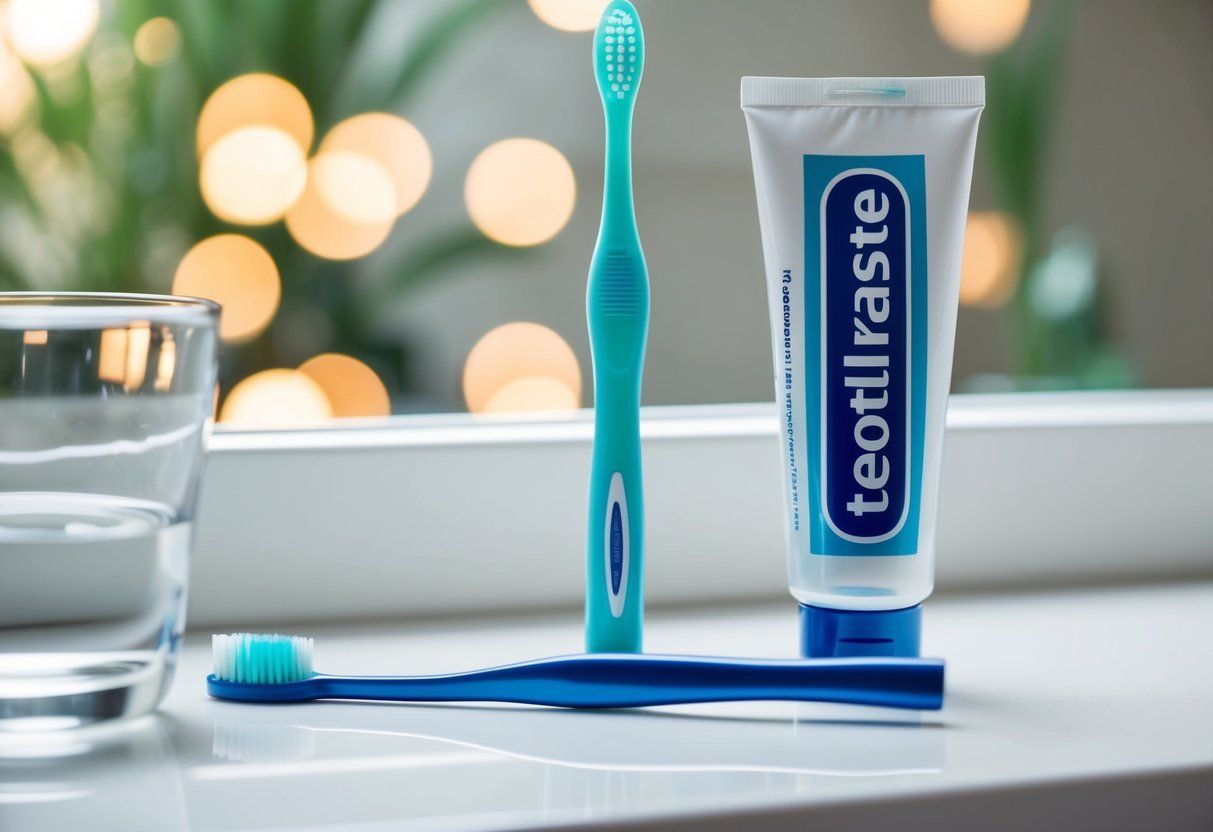
Tooth sensitivity and gum health are important for maintaining a bright, healthy smile. Proper care can minimize sensitivity and prevent gum disease.
Managing Tooth Sensitivity
Tooth sensitivity can occur when the enamel weakens or gums recede. This exposes the nerves in the teeth, leading to discomfort.
Using fluoride toothpaste can help strengthen enamel and reduce sensitivity.
Soft-bristled toothbrushes are recommended. They clean effectively without causing more gum recession. It’s also wise to avoid grinding teeth, which can increase sensitivity.
Hot, cold, or sweet foods may trigger discomfort. Keeping a diary of what causes sensitivity can help identify which foods to avoid.
If sensitivity persists, consulting a dentist is essential for further evaluation and treatment.
Gum Health and Preventing Gum Disease
Healthy gums are vital for overall oral health. Gingivitis is an early stage of gum disease, often caused by plaque buildup. Signs include redness, swelling, and bleeding during brushing.
Regular brushing and flossing are crucial in preventing gingivitis. Flossing helps remove food particles and plaque between teeth.
Using antimicrobial mouthwash can also aid in maintaining gum health.
Ignoring gum problems can lead to periodontitis , which is more serious. Periodontitis can damage the supporting structures of teeth and lead to tooth loss. Regular dental check-ups help catch issues early and keep gums healthy.
Additional Health Tips for Oral Care
Good oral care goes beyond brushing your teeth. Choices in toothpaste, regular visits to the dentist, and lifestyle habits can significantly impact dental health. Here are key tips to enhance oral care.
Effective Toothpaste Selection
Choosing the right toothpaste is important for maintaining healthy teeth.
Look for ADA-accepted fluoride toothpaste . Fluoride helps strengthen tooth enamel and prevents decay.
Toothpaste with the ADA seal indicates it meets high safety and effectiveness standards.
When selecting a toothpaste, consider one that targets your specific needs, such as sensitivity or whitening.
Brushing techniques matter too. Apply a pea-sized amount of toothpaste and make sure to brush for at least two minutes. Pay special attention to back teeth , where plaque can build up easily.
Regular Dental Check-ups
Regular visits to the dentist are essential for good oral health. It is recommended to have check-ups at least twice a year.
This allows for early detection of problems like cavities or gum disease. During these visits, professional cleaning can remove plaque that brushing may miss.
Dentists can also provide tips on effective brushing and flossing techniques. X-rays may be taken to check for issues below the surface.
Consistent check-ups help maintain overall dental hygiene and prevent serious health problems in the future.
Lifestyle Choices Affecting Dental Health
Lifestyle choices greatly impact oral health. A balanced diet contributes to stronger teeth and gums.
Limiting sugary snacks and drinks can reduce the risk of cavities and bad breath . Staying hydrated also helps; drinking water can rinse away food particles.
Avoiding tobacco products is crucial as they can lead to gum disease and oral cancer. Incorporating dental floss into daily routine is key.
Flossing removes food stuck between teeth, which brushing alone cannot always reach. Together, these choices can lead to better oral health.
Frequently Asked Questions
People often have questions about brushing their teeth. Many wonder about the best times to brush, the number of times to do it, and the effects of their habits on dental health.
Should you brush your teeth before or after breakfast?
Brushing teeth after breakfast can help remove food particles and plaque. However, brushing before breakfast may protect teeth from acids in certain foods.
Can brushing your teeth too often be harmful?
Brushing too often, especially with hard bristles, can wear down tooth enamel and irritate gums.
It’s best to stick to brushing twice a day.
What are the risks of brushing your teeth only once a day?
Brushing only once can lead to plaque buildup, which increases the risk of cavities and gum disease.
Regular brushing is essential for keeping teeth and gums healthy.
What are the benefits of brushing your teeth twice daily?
Brushing twice a day helps remove plaque and food particles, preventing cavities. It also promotes fresh breath and overall oral hygiene.
Why might someone still develop cavities despite frequent brushing?
Cavities can occur due to diet, lack of flossing, or not brushing correctly. Some people may also have deeper grooves in their teeth that trap plaque.
When is the best time to brush your teeth for optimal oral health?
Brushing in the morning and before bed is recommended for the best oral health. This routine helps fight plaque buildup overnight and after meals.…
